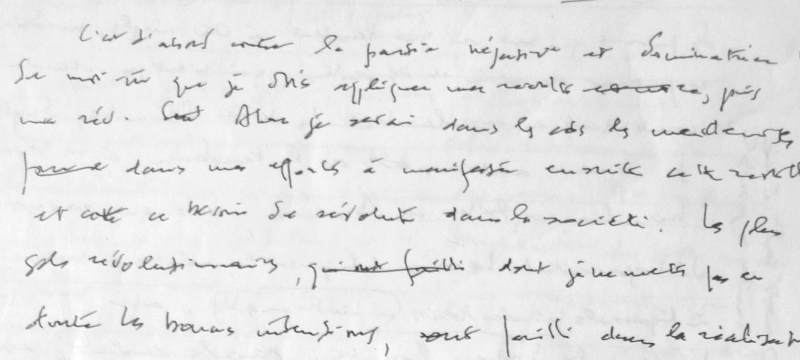


|
Extracts from texts to read in full.
|
| |
Buffon «Nothing
is more opposed to natural beauty than the pain that one takes to
express ordinary or common things in a singular or pompous manner;
nothing more degrades the writer. Far from admiring it, we complain of
having spent so much time making new combinations of syllables, to say
only what everyone says. This defect is that of cultivated but sterile
minds; they have words in abundance, no ideas; they therefore work on
words, and imagine that they have combined ideas, because they have
arranged sentences, and have purified language when they have corrupted
it by diverting meanings. These writers have no style, or, if you like,
they have only a shadow of it. Style must engrave thoughts: they can
only trace words. »
|
|
Guy
de Maupassant
«
Words have a soul. Most readers and even writers only ask for meaning.
It is necessary to find this soul which appears in contact with other
words, which explodes and illuminates certain books with an unknown
light, very difficult to bring out. There is in the connections and
combinations of the language written by certain men all the evocation
of a poetic world that the people of the worldly can no longer see or
guess. (...) We might as well talk about music to people who have no
ears. (…) Flaubert was tortured all his life by the pursuit of this
elusive perfection. He had a conception of style which made him enclose
in this word all the qualities which found a thinker and a writer at
the same time. (…) He believed in style, that is to say in a unique,
absolute way of expressing a thing in all its color and intensity. (…)
A sentence is viable, he said, when it corresponds to all the
necessities of breathing. I know it is good when it can be read aloud.
Poorly written sentences (…) do not stand up to this test. They oppress
the chest, impede the beating of the heart and are thus out of the
conditions of life. »
Chroniques,
Chronique sur Flaubert, partie 1
(Chronicles, Chronicle on Flaubert, part 1). Flaubert systematically declaimed what he wrote, in a small room which he called his "shouter".
Again this, in the same article: "In the verse," he said, "the poet has fixed rules, he has measure, hyphenation, rhyme, and a quantity of practical indications, a whole science of the job. In prose, you need a deep sense of rhythm, a fleeting rhythm, without rules, without certainty. You need innate qualities and, also, a power of reasoning, a practical sense, an artist sense infinitely more subtle, more acute to change at any moment the movement, the color, the sound of the style, according to the things we want say. When we know how to handle this fluid thing, French prose, when we know the exact value of words, and when we know how to modify this value according to the place we give them, when we know how to attract all the interest of a page on a line, to put an idea in relief among a hundred others, only by the choice and the position of the terms which express it, when we know how to strike with a word, a single word, posed in a certain way, as we would strike with a weapon, when you know how to upset a soul, suddenly fill it with joy or fear, enthusiasm, sorrow or anger, just by passing an adjective under the eye of the reader, you are really an artist, the superior of artists, a true prose writer. " Kafka « If the book we are reading does not wake us up with a punch in the head, what is the interest of reading it? (...) A book must be the ax which cuts through the frozen sea within us; this is what i believe.» |
|
On the functions of literature :
Lu Xun Les
chemins divergents de la littérature et du pouvoir politique
(The divergent paths of literature and political power) Downolad French PDF |
|
Also worth noting:
- the Poetic Art of Horace, then, of the same title, that of Boileau, in particular the first song, also Of semplicity and refinement in writing by David Hume; - correspondence from writers of all eras and countries: novelists, poets, essayists. |